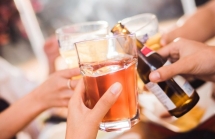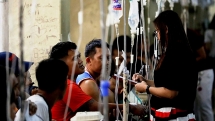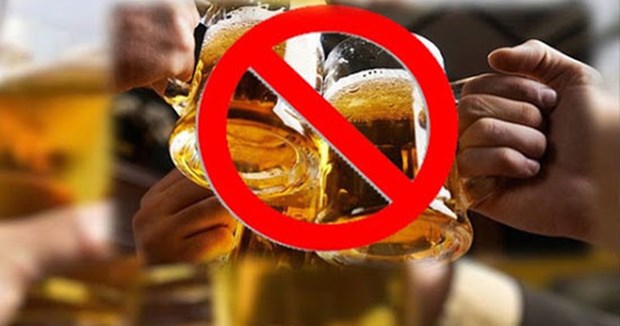Is Việt Nam ready for tougher booze laws?
| Law on Alcohol Harm Prevention takes effect on January 1, 2020 | |
| Philippines: Several dead, 300 treated after drinking coconut wine | |
| 10 things you should know about French wine |
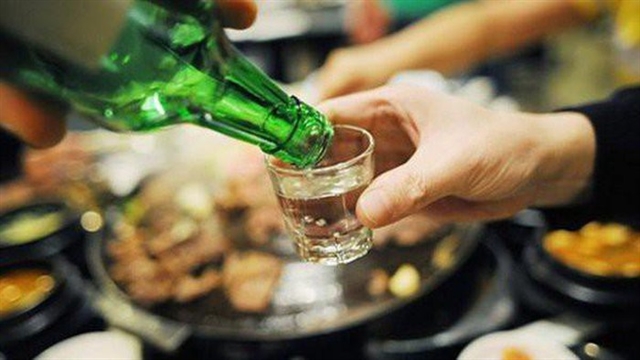 |
Trần Thị Trang, deputy head of the Legal Affairs Department under the Ministry of Health, speaks to Tiền Phong (Vanguard) newspaper about the Law on Alcohol Harm Prevention and Control which will take effect on January 1, 2020.
What regulations have been set in the Law on Alcohol Harm Prevention and Control to minimise harm caused by alcohol?
According to the World Health Organisation, Việt Nam’s Law on Alcohol Harm Prevention and Control has a lot of new articles which other countries can learn from. The law has comprehensive resources and solutions to reduce accessibility to and consumption of alcohol to cut down on alcohol harm.
The progressive point of the law is to ban people who have alcohol in their blood or breath from driving. In some European countries, the alcohol level of between 0.2 and 0.5mg per litre of breath is still permitted.
The level of zero in blood or breath is a strict regulation as Việt Nam has a large number of motorbikes (33 million).
To reduce the availability of alcohol, the law has banned alcohol sales at healthcare, educational and entertainment facilities, as well as drug addict rehab centres, social protection centres, offices and public areas.
The Government is also proposing a sales ban in cinemas and parks.
Alcohol is currently prohibited from being sold in parks in 123 countries and territories and at cinemas in more than 100 countries.
When we asked for feedback from ministries and sectors on the proposal, we received consensus.
The law has also regulated that vehicle owners and transport business owners hold responsibility for not allowing customers to drink and drive.
What regulations that would have huge impacts on alcohol consumption, especially men, have been missed in the law? What challenges do you think the law will face to be enforced?
One of the biggest challenges is the large number of drinkers. When drinking has become a habit, it is very difficult to change it.
To effectively enforce the law, we have to disseminate information to change public behaviour. The public are mostly aware of the harms of alcohol and alcohol bans while driving but they find it hard to change their behaviour.
Now buying alcohol is too easy due to a lack of strictness of alcohol advertising regulations.
The law does not mention banning online alcohol advertising. Meanwhile, a large number of people buy alcohol online. There are a lot of new types of alcohol advertisements, including cross-border online sales.
I think we should give priority to education and communication to reduce the availability of alcohol and prevent children, students, adolescents and pregnant women from getting alcohol.
To change a habit which has existed for hundreds of years, the best way is to start from young generations.
One point not included in the law is increasing special consumption tax on alcohol. The increase of alcohol tax will be included in the Special Consumption Tax Law instead.
The law will take effect in a few days. To ensure the law is effectively enforced, dissemination work has a very important role. What activities have been implemented by the Ministry of Health to step up communication?
Unlike the Law on Tobacco Harm Prevention and Control, the Law on Alcohol Harm Prevention and Control does not have enough funds and lacks financial support, making it difficult to put the law into practice.
To change awareness into concrete actions, besides communication, supervision on law implementation is very important and requires resources.
Amid personnel streamlining, inspectors, market surveillance forces and people’s committees at all levels face difficulties in mobilising resources for the new sector.
Law enforcement supervision will be sourced only from regular State budget spending.
The Ministry of Health has proposed the Government prepare a plan to implement the law and assign the Ministry of Industry and Trade and Ministry of Health to draw up two decrees to instruct the law's implementation in detail.
The Ministry of Industry and Trade will prepare the decree on alcohol imports, exports and homemade alcohol. The Ministry of Health will issue instructions on alcohol bans in public areas and online alcohol advertising./.
Recommended
 National
National
Vietnam News Today (May 13): Vietnam Maintains High Human Development Index Despite Global Slowdown
 National
National
Vietnam News Today (May 12): Party General Secretary Meets With Russian Experts, Intellectuals
 National
National
Vietnam News Today (May 11): Vietnam, Austria to Boost Cooperation in High-Tech Development, Innovation
 National
National
Vietnam News Today (May 10): Vietnamese Peacekeepers Honored with UN Medal in South Sudan
 National
National
Vietnam News Today (May 9): Vietnam Ready to Work With Russia to Elevate Relations
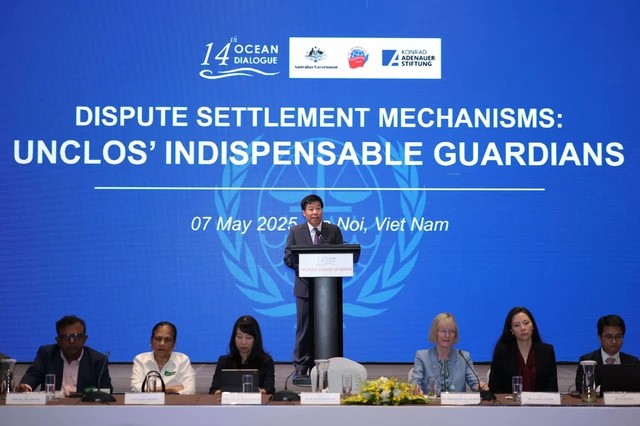 National
National
Vietnam News Today (May 8): Vietnam Remains Committed to UNCLOS
 National
National
Vietnam News Today (May 7): Vietnam Hosts Over 7.67 Million International Visitors in First 4 Months
 National
National

